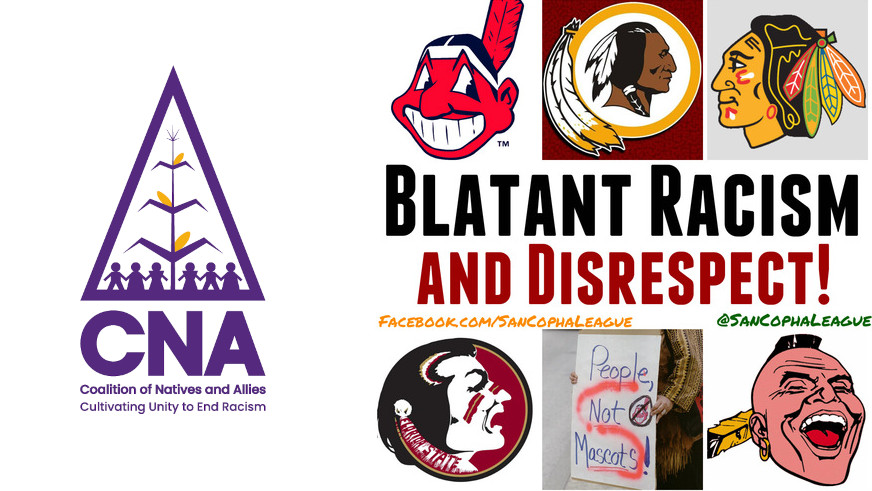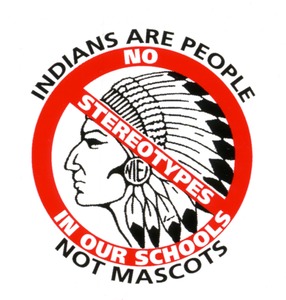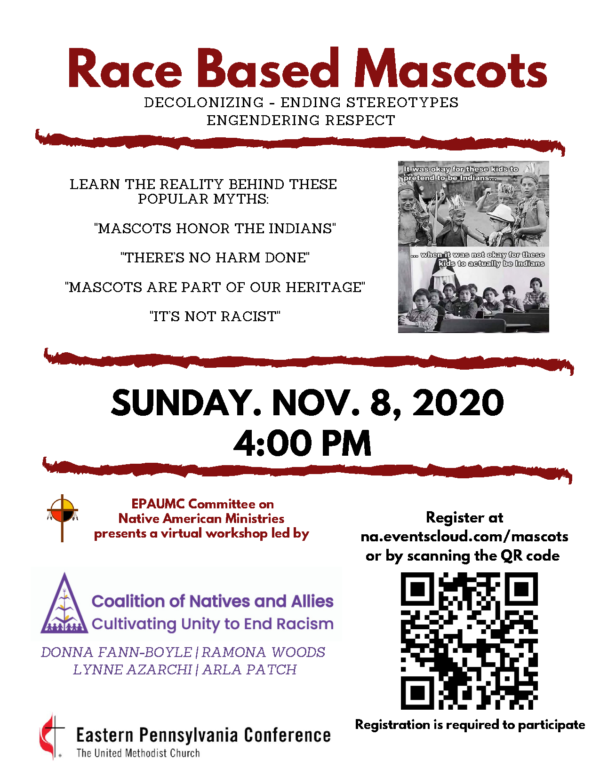
After decades of losses in their fight against the misuse of Native American culture for sports team mascots, advocates gained a rare major victory this past summer. That’s when the NFL’s Washington Football Team adopted that temporary identity after suddenly retiring its popular name that for so long has offended indigenous people.
Our nation has become more conscious of widespread, deeply ingrained racial prejudice and injustice, ignited by police killings of innocent black people and resulting in ardent protests. All of that led to corporate sponsors’ pressure on Washington “Redskins” owner Daniel Snyder, who reluctantly changed his team’s insulting name and logo. It also led to surprising changes in other enduring but racist stereotypes used as trademarks, from Uncle Ben to Aunt Jemima. And even more changes are being considered in response to the current movement toward racial dignity and justice.

Yet, the fight for justice and respect against Native American sports mascots is a difficult one waged against stubborn forces. Those forces range from professional sports to high school teams and unrepentant school officials across America. Advocates have collected about 6,000 signatures for an online petition to force Neshaminy High School in Bucks County to “change their racist mascot,” a Native chief’s head in full regalia, and their team’s unfortunate name: “The Redskins.” See petition: Get Neshaminy High School to Change their racist mascot
Although the number of such team names has been shrinking, about 1,232 high schools still have them, according writer Hope Allchin in her detailed article, “Hundreds Of Schools Are Still Using Native Americans As Team Mascots (published Oct. 12, in fivethirtyeight). Their names include the “R” name, along with Chiefs, Indians and tribal names. Fortunately, many over the past few decades, have retired more offensive names—like the Savages. But that required sharp pressure from the NCAA and broad public opinion against the derogatory practice.
According to the Pennsylvania Youth Congress, there are still 64 race-based mascots within this state’s public school system.
“Why are teams so reluctant to let go of their Native mascots?” Allchin asks. Ample research has shown they cause psychological harm to Native people, and tribal leaders continue to speak out against the disrespect and misappropriation of their cultural identities.

The always active Eastern PA Conference Committee on Native American Ministries will host a forum on Sunday, Nov. 8, at 4 PM, via Zoom video-conferencing that may address this question and many more. CONAM annually gathers in November, during the nation’s Native American Heritage Month, although usually at Innabah Camp & Retreat Center. Their program typically includes some learning, Native-themed worship and fellowship.
This Sunday’s program will focus on the ongoing struggle against abusive Native sports team names, mascots and imagery. CONAM’s new partner, the Coalition of Natives and Allies (CNA), will present enlightening information and facilitate discussion, no doubt hoping to welcome new allies to this fight.
A cross-cultural collaboration of Native Americans and allies, CNA “aspires to teach the truth about Native American histories, modern day Native issues and bring awareness to the trauma caused by negative and archaic stereotypes used for sports mascots.” Its mission is about “Cultivating Unity to End Racism.”

The education and advocacy resource group works with legislators, faith-based and non-profit organizations, state agencies, school administrators and others. “By highlighting the bias and prejudice these stereotypes cause, CNA strives to end the harmful use of Native American misrepresentation in schools.” (CNA website)
Come learn the truth about Native mascots, including popular myths, such as “Mascots Honor the Indians.” Download and share the event flyer. Learn more and register for this important learning.
Moreover, CNA’s informative website provides links to educational resources to help advocates in their opposition to Native American-themed mascots across the U.S.
- Change the Mascot
- Eradicating Offensive Native Mascotry
- Kids Bridge
- National Coalition Against Racism in Sports and Media
- National Coalition to Retire Indigenous Mascots
- National Congress of Native Americans
- No More Native Mascots
- PA Youth Congress
Also, view this inspiring 2-minute video on CAN’s website: Proud to Be
